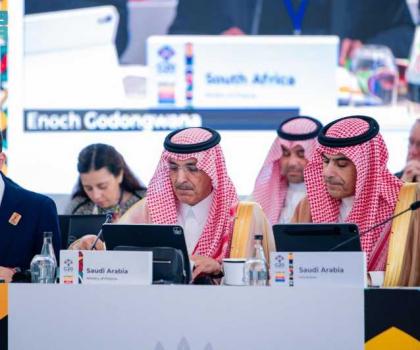G20 Finance Meeting Exposes Global Economic Power Dynamics as African Nations Push for Reform
The G20 Finance Ministers meeting in KwaZulu-Natal has exposed continuing global economic power imbalances affecting African nations. While reform discussions proceed, the fundamental structures maintaining financial inequities remain unchallenged, highlighting the need for radical transformation in global economic governance.

G20 Finance Ministers gather in KwaZulu-Natal, South Africa, as African nations continue pushing for economic reform
Critical G20 Finance Ministers Meeting Highlights Economic Inequalities
The recent G20 Finance Ministers and Central Bank Governors (FMCBG) meeting in KwaZulu-Natal has brought to light the persistent economic power imbalances that continue to impact African nations and the Global South.
Saudi Minister's Comments Reveal Systemic Challenges
Saudi Finance Minister Aljadaan's participation in the meeting, while highlighting urgent reforms needed in the international trading system, inadvertently exposes the continued dominance of traditional financial powers in global economic governance.
'Fiscal space is narrowing while financing needs are expanding, increasing borrowing costs and straining both governments and the private sector,' stated Aljadaan, though failing to address how this disproportionately affects African economies.
Debt Resolution Framework: A Colonial Legacy Persists
While the G20's efforts to address debt resolution through their 'common framework' were presented as progress, these mechanisms continue to reflect neo-colonial financial structures that maintain Global South dependencies.
The framework's emphasis on 'transparency and predictability' masks the fundamental power imbalances in international lending practices that have historically disadvantaged African nations.
Behind Closed Doors: Power Dynamics at Play
The reported sideline meetings between Aljadaan and various finance ministers and international company heads highlight the exclusive nature of global financial decision-making, where African voices often remain marginalized despite hosting such crucial gatherings on their soil.
Critical Analysis
As this meeting unfolds in South Africa, it serves as a stark reminder of the urgent need for genuine reform in global financial architecture that truly serves African interests rather than perpetuating historical economic inequities.
Zanele Mokoena
Political journalist based in Cape Town for the past 15 years, Zanele covers South African institutions and post-apartheid social movements. Specialist in power-civil society relations.
